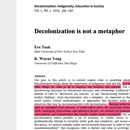For years, I listened to countless racist, homophobic, and sexist remarks from many people, including distant family, but always refrained from responding. Now, I realize that through not responding, I had become a part of the problem. I had succumbed to my fear made by the hate ingrained in the horrible comments.
Frightfully, the more I analyze the words spoken by the man in the White House and our political climate, the more I recognize similarities between our country now and how it stood before I was born. Seeing such strong similarities propels me to speak up more than I ever had because I am unwilling to go back in time. I refuse to go back to the times when segregation, discrimination, homophobia, sexism and violence against women were far too normal in our society.
There has never been a time more important than now for us to speak up against hate, intolerance and ignorance. If we don’t speak up now, then all the progress the great leaders of the past century made is in jeopardy. While speaking up against hate can be scary, it can cause great change. By speaking up, we may be able to introduce others to knowledge they never had the opportunity to learn and to make a clear statement by proclaiming that even if their ignorant remarks had been accepted in the past, they are not okay now.
Here are a few tips to keep in mind when speaking to people who have made hateful and ignorant comments that offended me or anyone around me. I hope they are helpful.
-
Call out the comment, not the person.
I have learned to utilize this rule more as I’ve grown older, as it took the longest to master. I don’t ever assign the person I’m speaking to any strong adjectives, instead, I point out how their comments or actions have hateful tendencies.
For example, if I ever heard a person make a racist comment, I wouldn’t automatically call them a racist. I would instead say that their comment is problematic and explain how it was offensive. Calling out the statement and not the person avoids any extra tension between us and to allows a more cooperative and constructive conversation to take place. If I were to call that person a racist, it is likely that they would become defensive and avoid listening to me.
-
Remain calm and collected.
From personal experience, I know that it is hard to remain calm in moments when your identity is threatened or your values are pushed. When it comes to dealing with people who are resistant to change, it is essential to act.
Remaining calm is perhaps the most important rule on this list. When you remain calm, your thoughts are often more organized, you are able to make a stronger argument, and you can help deter any unwanted altercations that could further complicate the situation
-
Use facts and numbers.
Feelings and experiences should be validated by others, but most of the people who want to spread hate find personal experiences ‘subjective’ and not enough to support arguments. To inspire them to listen, I usually throw some numbers into the conversation. No one can fight with statistics and math because these are absolute and objective. Even if they refuse to validate your feelings, they cannot dispute with facts. Use the numbers to amplify the narrative of oppression that you are trying to address.
-
Whenever it gets to a point of no compromise, quit it.
If the person you are talking to refuses to listen to you or will simply not make a compromise, take care of yourself and walk away. We speak up to help people learn from what you have to say, but if they are not listening then the point becomes moot.
Keep educating others and spread love in our society because it needs all the love it can get.


